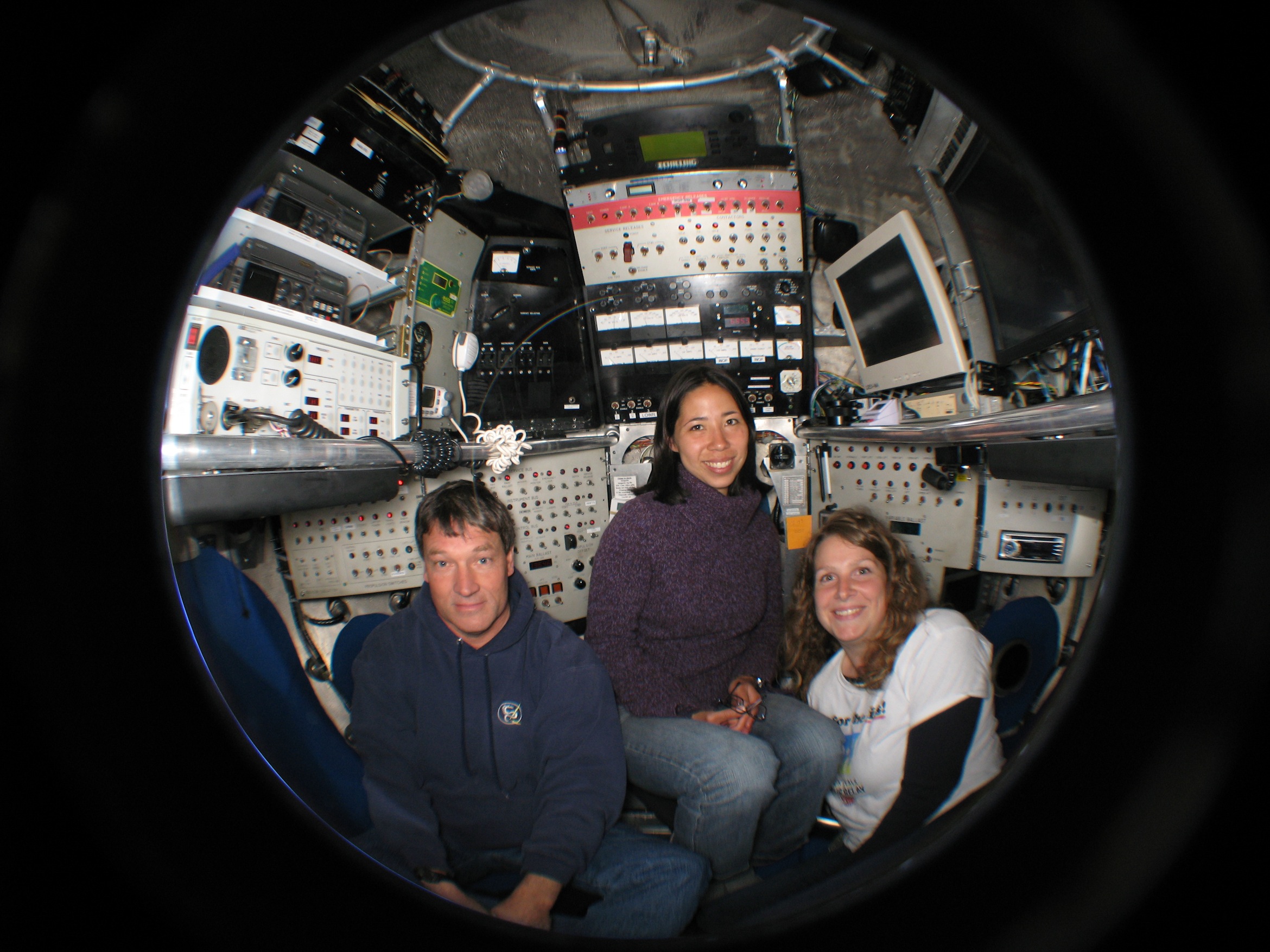 |
|
|
Fall 2013 A Word From The Director Dear Astrobiology Enthusiasts, We've had a busy and productive year with a focus on maintaining our excellence while expanding our program. The School of Environmental and Forest Sciences and the Department of Atmospheric Sciences joined our existing six participating departments and schools in offering the Dual-Title PhD in Astrobiology. We also welcomed four new faculty members, six new students and three affiliate students into the program. Our graduates included Marcela Ewert-Sarmiento and Rika Anderson (pictured with colleagues in the submersible Alvin) who earned Dual-Title PhDs in Oceanography and Astrobiology, and Kyle Costa (PhD Microbiology) who earned a Graduate Certificate in Astrobiology. We also introduced a new course on Professional Development for Astrobiologists into our Dual-Title PhD curriculum, to better prepare our graduates for their future careers. Our students, researchers and faculty continue to excel! Highlights of our many scientific publications this year can be found in the Newsletter sidebar. They include astronomical discoveries of extrasolar planets, new theoretical understanding of factors that affect planetary climate, evidence for meteoritic origins for life's building blocks, and chemical processes relevant to the origin of life. UWAB community members also won two of the five prestigious NASA Astrobiology Postdoctoral Fellowships awarded nationwide this year. UWAB graduate Dr. Rika Anderson won her fellowship to work on ecological selection pressures on the evolution of ancient and extreme life with the NASA Astrobiology Institute team at the University of Illinois Urbana-Champaign. Incoming postdoc Dr. Jon Toner won his fellowship to work with UWAB faculty member Prof. David Catling (ESS) and the UW's Virtual Planetary Laboratory NAI Team on states of low-temperature liquids that are relevant to the habitability of the Martian environment. Jon joins VPL postdoc Dr. Peter Driscoll, who recently came to UW from Yale to work on the internal structure of planets and magnetic field generation, and how these properties impact planetary habitability. Although our faculty and researchers have been very successful in securing research funding for our program, we still face considerable challenges in obtaining funding for program needs that cannot be covered by federal research grants or limited State resources. These include funds and scholarships for student recruitment to attract the best and brightest to our program, as we often compete for our students with wealthier institutions like Harvard and Caltech. We also need graduate scholarships to support interdisciplinary exploration by our students, and additional support for student participation in our highly-acclaimed astrobiology workshops. We are hoping to make significant progress on these areas of our funding profile over the next year. This year we are also looking forward to enhancing the accessibility and experience of astrobiology not just for our students, but also for the public. We will continue to offer our Astrobiology Colloquium Series in spring and fall, with cutting edge astrobiology research presented by visiting and local experts. Select talks in this series are webcast and recorded by the NAI for live and later viewing (instructions on how to join in are provided in the Newsletter sidebar). Additionally we will offer more evening public lecture events this year, with presentations on extrasolar planets and the origin and evolution of life in spring, and an astrobiology public lecture series during the summer. So stay tuned for updates on those! Best wishes for the Holiday Season and a discovery-filled New Year! Prof. Victoria Meadows Photo: (Center) Rika Anderson (PhD 2013, Oceanography & Astrobiology) and colleagues aboard the submersible research vessel, 'Alvin'. |
|

